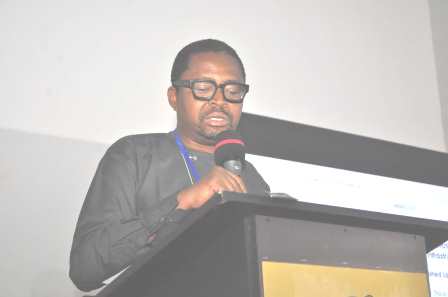Nigeria’s freight forwarding industry is witnessing a structural revolution driven by massive investment in freight forwarding infrastructure modernization aimed at cutting inefficiencies, improving trade competitiveness, and diversifying cargo movement beyond roads.
Presenting a paper at the Nigeria Transport Infrastructure Summit 2025, Chairman of Widescope International Group, Dr. Oluwasegun Musa, represented by Mr. Mark Onuchi, noted that Nigeria’s freight sector has begun a deep transformation through strategic public-private partnerships and multimodal integration designed to enhance efficiency and sustainability.
“Nigeria loses an estimated $8 billion annually to logistical inefficiencies,” Dr. Musa stated, citing data from the Lagos Chamber of Commerce and Industry (LCCI). “That’s why modernization is not optional it’s an economic imperative.”
READ: News: Prof. Badejo Says Nigeria’s Transport Future Hinges on Multimodal Integration
A major symbol of this transformation is the $1.5 billion Lekki Deep Sea Port, commissioned in 2023. According to Musa, the facility has already begun to ease congestion at Apapa Port by enabling direct international shipping links and bypassing costly transshipment routes.
The port’s 2.7 million TEU annual capacity makes it a crucial hub for Nigeria’s growing container traffic, while its multimodal design linking directly to rail and road networks marks a decisive shift from the country’s outdated mono-modal system that once depended almost entirely on trucks.
READ: Africa: Nigeria Can Replicate World-Class Transport Systems Says Pearl Ngwama
Studies referenced in Musa’s paper predict the new port could help meet projected container demand increases by 2025 and save shippers up to $300 per forty-foot container, directly boosting Nigeria’s trade competitiveness.
Complementing port expansion, Nigeria’s rail infrastructure revival, particularly the Lagos-Kano and Kano-Maradi lines is reshaping how cargo moves inland.
“Rail cargo volumes grew by an astonishing 132% in 2018, showing the untapped potential for modal shift,” Musa observed. “Shifting freight from road to rail can reduce emissions by up to 76%.”
Inland water transport (IWT) is also seeing a resurgence after years of neglect. Freight forwarders are increasingly using barges and inland vessels to move containers from Lagos ports, reducing truck congestion and cutting transit times for terminal evacuation.
“Water transport not only decongests our roads but provides an environmentally friendly alternative,” Onuchi said, noting that barge operations emit far less carbon per ton-kilometer than road freight.
These multimodal improvements are translating into measurable benefits: lower costs, reduced travel time, and greater resilience in supply chains.
Musa noted that these investments, coupled with policy reforms by the Council for the Regulation of Freight Forwarding in Nigeria (CRFFN) and improved customs procedures, are positioning Nigeria for a major leap on the World Bank’s Logistics Performance Index (LPI) where the country ranked 88th in 2023.
However, he cautioned that more investment in regional connectivity, particularly the integration of dry ports and logistics corridors, will be essential to sustain momentum.
“What we’re building today is not just infrastructure but the backbone of Nigeria’s trade future,” Musa concluded. “Every new rail line and every barge movement brings us closer to a seamless logistics ecosystem.”

